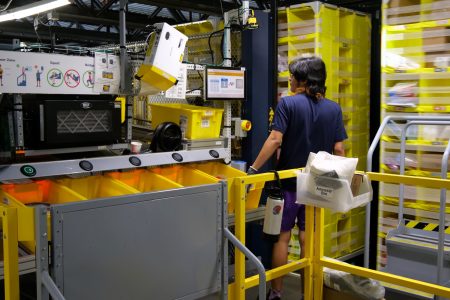The recent return-to-office mandate issued by Amazon, requiring corporate and tech employees to work from its offices five days a week, has sparked significant discontent among working parents, particularly those with young children. The shift away from the flexibility afforded by remote and hybrid work models during the pandemic has left many feeling frustrated and disillusioned, prompting some to consider leaving the company. Parents express concerns over the loss of flexibility that allowed them to manage childcare responsibilities, such as attending doctor’s appointments or picking up sick children from daycare. The anticipated increase in commuting time and the associated rise in childcare expenses add further strain on families. This perceived lack of empathy and understanding from Amazon’s leadership has eroded trust and morale among some employees.
The primary anxieties revolve around the anticipated loss of flexibility that characterized remote work. Many parents fear the inability to attend to their children’s needs during work hours, worried that taking time off for appointments or emergencies would negatively impact their performance reviews and career progression. They express concerns that their commitment will be questioned, especially when compared to colleagues without children or those with more traditional childcare arrangements. The added burden of commuting, which encroaches upon valuable family time in the mornings and evenings, further exacerbates the challenges faced by working parents. The financial implications of the return-to-office policy are also significant, as many families face increased childcare costs associated with full-time daycare.
Amazon’s response to the concerns raised by its employees has been to reiterate its existing policy, stating that employees requiring flexibility should communicate with their managers. However, this approach has done little to alleviate the anxieties of many working parents. They argue that this reliance on managerial discretion fails to acknowledge the systemic challenges they face and creates an environment where requesting flexibility can be perceived as a weakness. Furthermore, they believe that this policy places an undue burden on individual managers, who may not have the resources or authority to accommodate all requests. The lack of a clear, company-wide policy addressing the specific needs of working parents has left many feeling unsupported and undervalued.
This discontent is not isolated to a small group of employees. Surveys conducted on anonymous professional platforms reveal widespread dissatisfaction with Amazon’s return-to-office policy. While these surveys may not be scientifically representative of the entire workforce, they nonetheless indicate a significant level of unhappiness among a substantial portion of Amazon employees. This sentiment places Amazon in contrast to many other major corporations, particularly in the tech sector, which have adopted more flexible hybrid work models. While a few companies, including Starbucks, have implemented stricter return-to-office policies, Amazon’s stance remains an outlier in the current corporate landscape.
The impact of Amazon’s policy extends beyond its employees to the broader childcare industry. While some childcare providers, particularly those located near Amazon’s headquarters, report an increase in inquiries, others have not observed a significant change in demand. The long-standing challenges of finding affordable and accessible childcare in the Seattle area are further exacerbated by the rising costs of care and the ongoing staffing shortages within the industry. The return of a large workforce like Amazon’s to full-time office work is expected to further strain the already limited capacity of childcare providers, potentially creating a disparity between those who can afford premium childcare services and those who cannot. This “haves and have-nots” scenario raises concerns about equity and access to quality childcare.
The frustration expressed by Amazon’s working parents transcends the specific details of the return-to-office policy. It reflects a deeper concern about the perceived erosion of trust between employees and leadership. Many feel that the company’s decision disregards the needs of its employees, particularly working parents, and prioritizes on-site presence over individual circumstances and productivity. This perceived lack of empathy and understanding has damaged morale and fueled a sense of disillusionment among some employees. The frequent conversations about leaving the company underscore the depth of this discontent. The clash between Amazon’s stated goal of being “Earth’s best employer” and its current policies regarding workplace flexibility has left many questioning the company’s commitment to its employees’ well-being.














